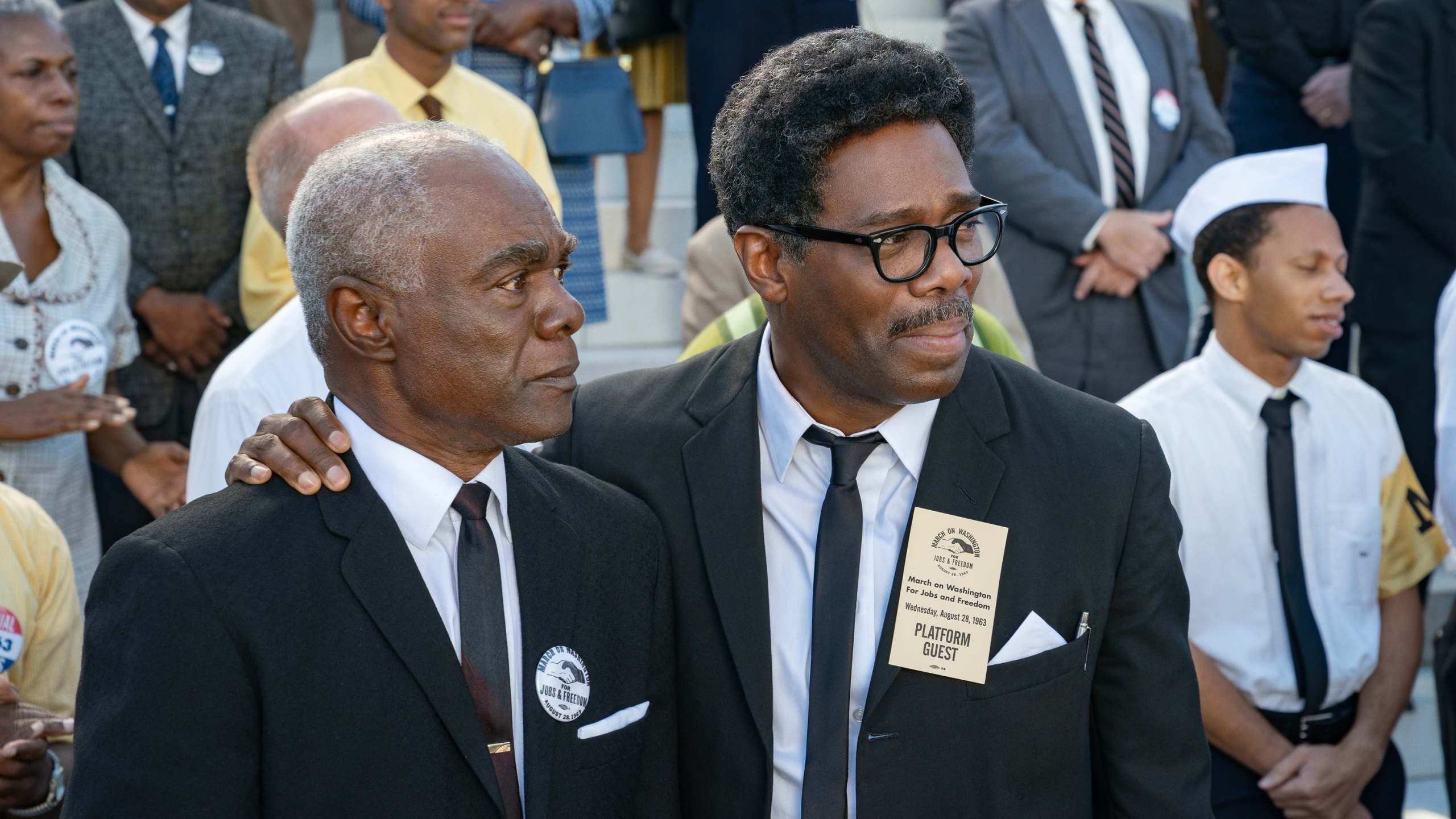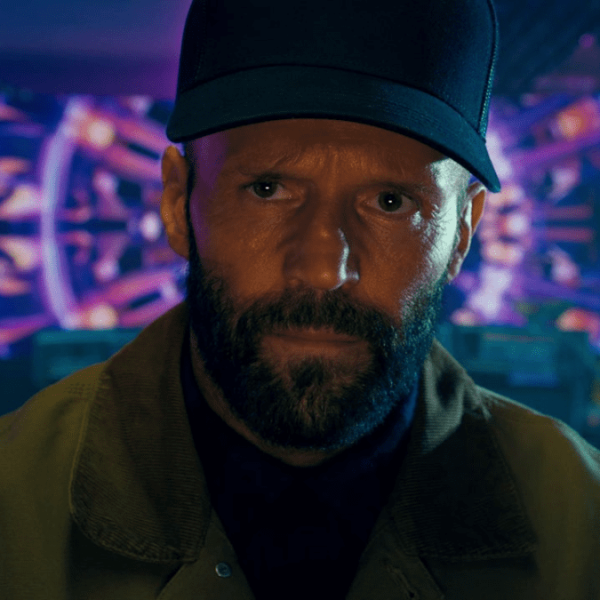Anyone even slightly familiar with the work of director George C. Wolfe, whether it be his theater career that’s netted three Tonys, or film projects like “Ma Rainey’s Black Bottom,” which won two Oscars, will immediately see his fingerprints all over the new Netflix film “Rustin.”
“I am not a passive participant in the creative journey. I don’t sit back and wait for somebody to deliver a cast or a script or a production design or anything,” said Wolfe to IndieWire during an interview at the 50th Telluride Film Festival. “I have this rule for myself: Everything either contributes to the telling of the story or distracts. So you’ve got to make sure that everything, everything matters—every costume, every moment. And sometimes one can obsess about crazy things, but ultimately they’re part of the storytelling. And that’s one of the things that I love about directing film is that the stakes are so large, it matters so much.”
“Rustin,” in particular, is a film likely meaningful to various under-served audiences, as it depicts the untold story of how gay, Black, one-time Communist Bayard Rustin managed to spearhead the March on Washington in 1963 — the world’s largest peaceful protest to date — in roughly six weeks. If that were not enough, the political organizer had initially proceeded with event planning despite an estranged relationship with close friend and mentee Dr. Martin Luther King Jr., and little support from the NAACP.
“Nobody knows anything about him, and he’s a phenomenal human being,” said Wolfe. “So the first obligation is to make sure that the story is told correctly, and that the story is engaging and powerful. And then my next responsibility is to people it with amazing people.” That starts with lead Colman Domingo, who may seem born to play the political activist, and had starred in Wolfe’s “Ma Rainey’s Black Bottom,” but was not immediately attached to the project when producer Bruce Cohen pitched Wolfe, and then the Obamas’ Higher Ground, about making a biopic centered on the Civil Rights icon. “It was just you work on the script, you live inside the script, and you live inside the story, and you live inside of this, and then you go, ‘Oh, Colman’s perfect!’”

When asked what hand he had in finding the rest of the actors playing important figures of the movement, like A. Philip Randolph, Adam Clayton Powell, Ella Baker, and Dr. Anna Arnold Hedgeman, coincidentally played by actors Wolfe has frequently collaborated with over the years, the director interjected in jest, saying “I cast the movie! Yeah. Who else is going to cast the movie? What kind of question is that?”
Expanding on his approach toward finding the right actors to play “people that I’m certain an X number of people don’t know, but that doesn’t lessen the magnitude of their personality and the force of their personality, and the force of their significance,” Wolfe said he wanted stars “who are very skilled, very brilliant, and very commanding.” Glynn Turman, Jeffrey Wright, Audra McDonald, and CCH Pounder, who all play the respective roles listed above, are examples of “all these incredibly smart, wonderful people,” said the director, “who all agreed to do the material. And Colman is very much so at the center of that. And he has this extraordinary charisma and a personality and is a hardworking actor, and a really great sort of set leader.”
In talking about “bringing all these incredibly smart, dynamic, powerful people, and fitting them all in a frame, and seeing what happens as a result of that,” Wolfe highlights Adrienne Warren, who came to the Pittsburgh set for two days, and then went right back to her Tony-winning run as Tina Turner in “Tina” on Broadway. “Those two scenes are just so you understand a whole marriage, you understand a whole relationship. You understand completely who she is when she married this man, why she married this man. And you get all of that from two scenes. So it is a thrill,” said the director.
And she is not alone, as “Rustin” really allows each character an impactful moment or gesture, which both highlights Domingo’s tour de force performance taking up the frame, and Wolfe’s ability to tee up every one of his actors for success, regardless of the size of their role. “There isn’t a passive character in the film. Everybody is operating from a place of extraordinary stakes. And so you want that dynamic at all times,” said the filmmaker.

Reflecting on his artistic intent again, Wolfe said “Bayard is an extraordinary, a very astonishing human being, and people need to know him. They need to know him. Their lives will be better. People’s individual lives will be better for knowing about Bayard Rustin. People’s lives will be better for knowing about Dr. Anna Arnold Hedgeman whose father asked her, ‘What have you done today to make yourself useful?’”
It’s a question that the director hopes viewers will begin to ask themselves after watching Rustin work. “You are in the presence of these people who matter and who have had lives and lived through a period of time where they were very ferociously committed about redefining the cultural and political landscape of this country,” said Wolfe. Though that statement applies more toward the characters depicted in “Rustin,” there is a palpable dedication to doing the man justice that makes it true of the artists making the film as well, including the resolute director himself.
“Rustin” premiered at the 2023 Telluride Film Festival. It will open in select theaters on Friday, November 3, and be available to stream on Netflix starting Friday, November 17.


